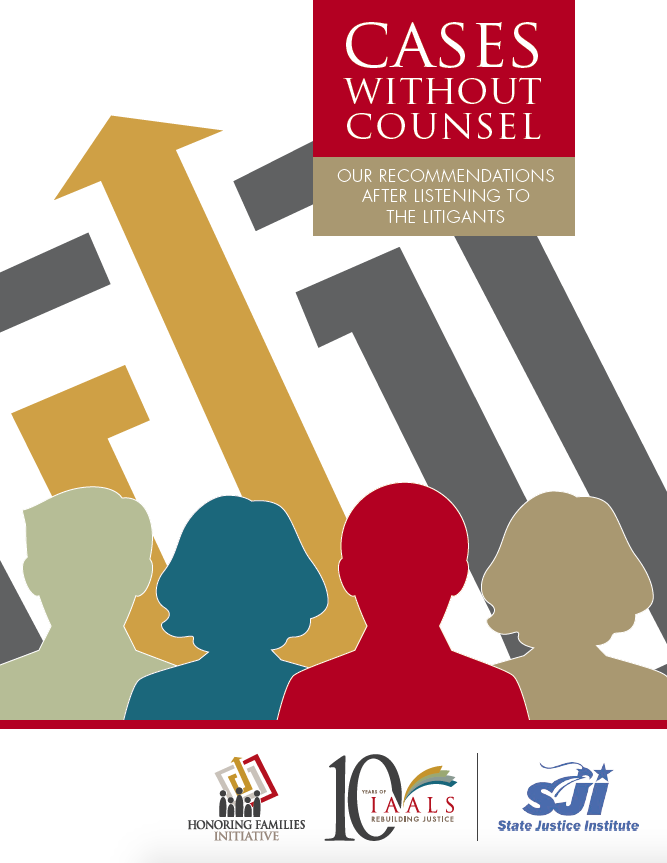Cases Without Counsel: Our Recommendations after Listening to the Litigants
Many litigants navigating state family courts today are without attorney representation—in some courts, these numbers are increasing. Justice system stakeholders have made significant efforts in the last decade to develop self-helpinformation, resources, and programs for those without representation. All too often, however, litigants are left out ofconversations on how to improve the process for others like them.
IAALS undertook a qualitative empirical research study designed to explore the issue of self-representation from the litigants’ perspective. Our Cases Without Counsel project gathered detailed narratives directly from family court self-represented litigants and those who engage with litigants in the court through one-on-one interviews. The study findings (detailed in the companion Research report) present an array of suggestions for how to better serve litigants without lawyers.
This Recommendations report includes the various stakeholder recommendations alongside materials and resources for those interested in learning more or implementing various components in their respective jurisdictions. Fundamentally, the report suggests a change in the conversation on self-representation. System stakeholders must accept the onus of shared responsibility for helping self-represented litigants through the process. IAALS encourages court, legal, and broader community stakeholders to view these recommendations as blueprints for a coordinated response to better assist self-represented litigants in family court and a means through which to fulfill this shared responsibility.

